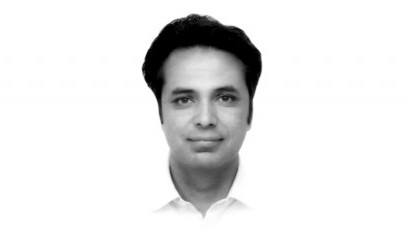
Yet as is the wont and practice of the government, no one paid attention to the looming threat. The local community went blue in the face shouting for help; the media, in spite of being consumed by the many other colourful and attention-catching issues, still managed to provide sufficient space for these apprehensions to be aired and reported. The local politicians, with their ears bent to the ground, too, made noises. Yet the government at the centre were nonchalant. It said nothing except make an occasional statement of perfunctory concern. It required neither a Herculean effort nor the brains of Einstein to nip this problem in the bud. It simply needed attention and deployment of the resources at hand to quickly clear, with foreign help if necessary, the blockade. As with hundreds of other solutions that are available for dozens of basic problems ruining the lives of Pakistan’s ordinary citizens, this solution was not applied. The result is before us. Just like the law and order situation, supply of clean water or regular electricity, Hunza’s gigantic lake has aggravated to become a near catastrophe.
The government representatives’ response to the ringing of the alarm bells on the lake menace has been no different from their reaction to the hue and cry that people raise when they see official inaction. The information minister, Qamar Zaman Kaira, who has become the PPP’s strategic weapon of offence against critics, brushed aside all those talking about the coming crisis. Berating media Jeremiahs who were shouting to focus official attention on the issue, he promised to the locals a solution in seven days — after which life would be back to normal. His colleagues in Islamabad, spoke, half seriously and half in jest, of the upside of the lake: an Allah-mandated dam in a country where building one with political effort seems next to impossible. If communities get displaced as a result of natural calamity, one of them was heard arguing at a dinner table, would be so much easier to deal with: they had to accept their fate rather than flying at the government’s throat with relocation and compensation claims. This typified the present-day governance model which promises the moon in seven days and then hopes for divine intervention for the journey to start. (I am sure Mr Kaira has an immensely impressive-sounding defence of his position on this score.)
But the striking resemblances in the formation of the Attabad lake and the government’s governance module doesn't end here. It tallies in another and a most important respect. In solving the lake problem the government faced no major hurdle. This particular area of government authority was not challenged by the judiciary, nor — to use the president’s mystery phrase — “political actors” of the biased section of the media. There was no intelligence agency hatching lethal plots, and no general was standing in the way of free, swift action. Yet the government looked the other way and pushed thousands of people, including its voters, in harms way, jeopardising a significant part of a centuries old life style.
This unmitigated disaster in Hunza is no different from countless terrible happenings in our lives that could be prevented by timely action — and where the government faces no hindrance from any quarter. The landslide that has caused the lake to come up is indeed the work of nature. But since then every drop that has gone into the making of the hydro hydra belongs to the government’s dripping incompetence. It is not a lake. It is the world’s largest water grave of governance.
Published in the Express Tribune, May 24th, 2010.
1724760612-0/Untitled-design-(12)1724760612-0-405x300.webp)











COMMENTS (5)
Comments are moderated and generally will be posted if they are on-topic and not abusive.
For more information, please see our Comments FAQ